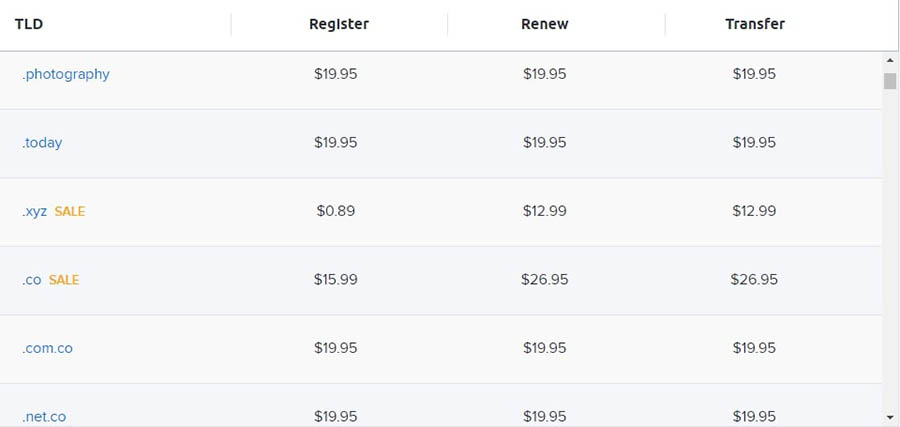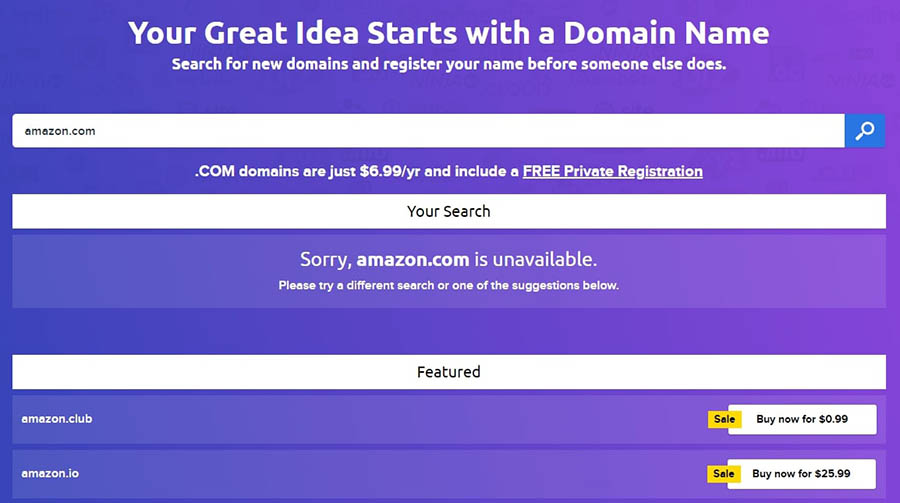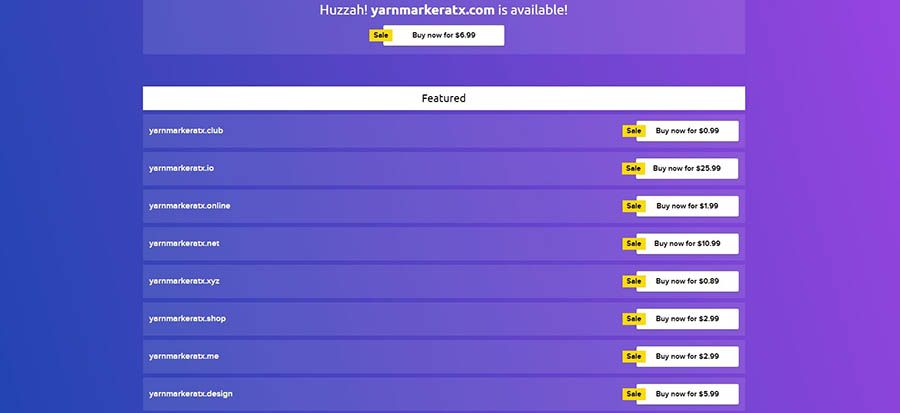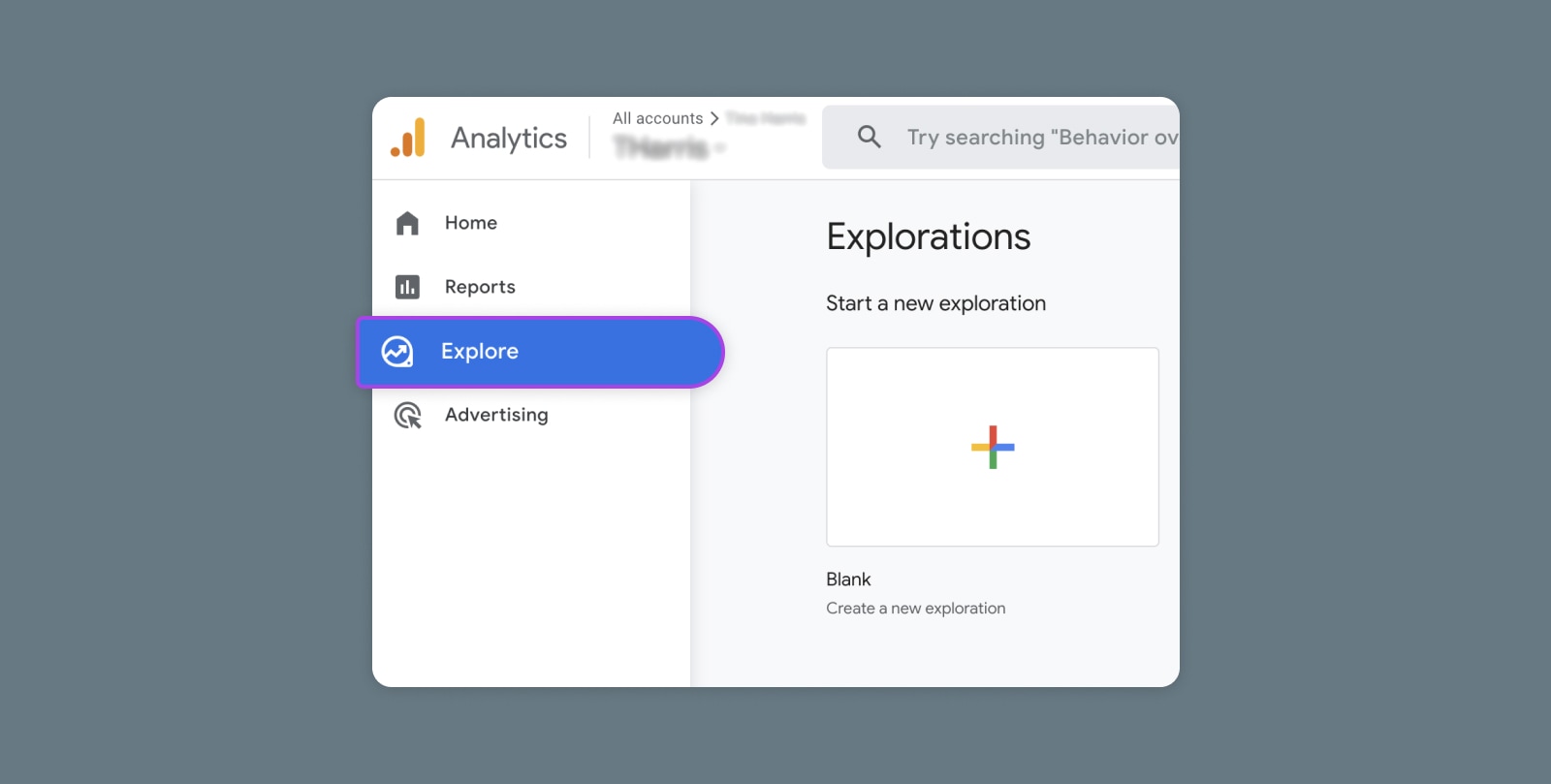Which is harder: Naming your kid or choosing a domain?
Sure, your bambino is stuck with the moniker you choose until they can get a judge to change it, but you won’t need to reinvent the wheel to come up with something to call them. You can look to historical figures, literary characters, or even your favorite TV show for inspiration.
However, when it comes to a domain, you’ve got to make sure your digital baby is truly unique. No repeats allowed.
So what makes a good domain name?
Generally speaking, you’ll want something memorable, brandable, and easy for people to type and pronounce. It’s also smart to avoid anything too long or overly specific. By following a few simple guidelines, you can pick out a name that helps to drive more traffic your way.
In this guide, I’ll explain why your domain name matters and share 11 factors to consider when making this decision. I’ll also discuss the best places to register a domain and how you can get a free one along with your web hosting. Let’s get started!
Your Great Idea Starts with a Domain Name
Don’t let someone else register your dream URL. Search DreamHost’s 400+ TLDs to find the perfect match for your website.

Why Your Domain Name Matters
Your domain name is as much a part of your brand as your business name or logo. Even if you’ve nailed your branding in every other respect, if there’s something about your domain name that puts potential customers off, they’ll likely go elsewhere.
The opposite is also true. If your web address is accurate and as fun to say as it is to use, people will be eager to check it out and share it. First impressions matter, and sometimes your domain is the initial experience people will have of your brand.
It’s also not easy to change your domain name after your site is online. You can do it, but it can be time-consuming and does have consequences. It can lead to a loss of traffic and unnecessary downtime. In other words, life will be a lot easier if you take your time now and come up with a name you love.
Related: A Beginner’s Guide to Domain Registration
11 Important Factors to Consider When Choosing a Domain Name
As with most big business decisions, you’ll find plenty of opinions about how to select the right domain name. To make it easier, let’s take a look at eleven key points to consider.
1. Choose Your Top-Level Domain Extension Carefully
A Top Level Domain (TLD) is the piece of your domain that comes after the site’s name. The most common TLDs are .com, .net, and .org.
There are plenty of newer TLD options, but it’s usually best to keep it old school and stick to .com if possible. It’s been around the longest and is the most popular, so people are very familiar with it.
Of course, it’s possible you won’t be able to secure a decent domain name with a .com TLD since many are already taken. However, it’s not the end of the world if you have to use an alternative.

You’ll find tons of available options that can add personality to your web address. Just make sure that whatever you select makes sense for your website and audience.
Related: The Complete Guide to New Domain Extensions
2. Incorporate Keywords Strategically
Keywords aren’t just for content. Search engines use your domain name to understand what your site is about and help determine search rankings. So it’s essential to include keywords where possible.
The keywords you choose for your domain name should be relevant to your website. It’s much more important to represent your content accurately than to add keywords for their own sake. If you’re stuck for ideas, you can give Google Keyword Planner a try.

This free tool lets you explore keywords by search volume and other factors to identify terms people actually use. Don’t get too carried away, though. Using too many keywords, especially popular ones, can make your site seem boring and maybe even a little untrustworthy.
3. Make Sure Your Domain Is Easy to Pronounce and Spell
You probably want your domain name to be memorable. However, if you’re thinking of going the Elon Musk baby-naming route, don’t. No matter how cool it looks spelled out, there will come a time when you’ll have to give someone your website or email address verbally.
Word-of-mouth is still powerful advertising. What’s more, it only works when people can actually pronounce your domain. This also makes the name easier to remember, increasing the odds that people will visit and pass the site along to their networks.
4. Avoid Hyphens
Using hyphens may seem like a creative way to get the domain name you want. Unfortunately, they’re tough to express verbally. They also make the domain more difficult to type. Some people will likely forget about them entirely and end up on someone else’s website.
Generally, when you’re brainstorming domain name ideas, try to avoid anything that isn’t a letter. That includes replacing letters with numbers. Those kinds of touches make the name a lot easier for people to misremember and mistype.
5. Avoid Using Doubled Letters
Using doubled letters in a domain name is practically asking for typos. Doubled letters are hard to read and even harder to type correctly.
If mistakes happen often enough, you may end up with someone typosquatting and stealing your traffic. Plus, having to spend even a few seconds longer than necessary trying to figure out how to spell your domain is an unnecessary distraction.
6. Keep Your Domain Name Short
There are several reasons short domain names work better. First, shorter names are easier to remember and type. Therefore, they are beneficial for branding purposes.
Also, an overly long domain name is yet another way to look suspicious. If you don’t use too many keywords and make your name easy to pronounce, on the other hand, your domain will probably be short naturally.
7. Stay Unique and Brandable
A unique domain name can help your business stand out and potentially help you avoid legal trouble. It can also contribute to your marketing efforts, so you’ll want it to be brandable.
StitchFix is an excellent example of a unique, brandable name.

StitchFix checks all the boxes when it comes to marketable domain names. It’s fun to say, doesn’t have any inherent meaning, and is easy to remember and spell.
8. Pick a Domain Name That’s Flexible
Your domain name is one area where you don’t want to paint yourself into a box. While you should be specific enough to attract an audience, you don’t want to be so precise that there’s no room for your website to grow.
For example, “shutter.photography” might be perfect for a photography blog. However, if you decide to write about other art forms as well, you’ll be stuck with an inaccurate domain name. So it’s smart to consider upfront how your site or business may expand over time.
9. Do Your Domain Name Research
Once you’ve narrowed your search down to a few candidates, you can use a research tool to determine if it’s available.

However, just because the domain name is available doesn’t mean someone else doesn’t have a valid claim to it. To be safe, you’ll want to perform a trademark search before making your choice.
It’s also best to make sure you can secure appropriate social media handles. If you can’t get an exact match, try finding something that makes sense with your domain name.
Related: Boost Your SEO Ranking with These Domain Best Practices
10. Don’t Get Analysis Paralysis
Chances are that if you want a domain name, someone else probably wants it too. If you’re sure about your choice, go ahead and buy the domain.
This is especially recommended if it’s reasonably inexpensive. Plus, if you come up with something better later on, you can always let the registration lapse. You don’t want to end up in a dispute because you didn’t act fast.
11. Protect Your Brand With Multiple Domains
Have you ever heard: “If the shoe fits, buy it in every color?” Well, if the domain name fits, buy it in every TLD.
Even if you manage to snag a coveted .com address, you might consider purchasing other options and setting up redirects. You can even go a step further and buy common misspellings of your domain name.

This is a smart strategy to apply to social media as well. Even if you don’t think you’ll use Twitter, you might want to grab a decent handle if one is available. You’ll be ready if you ever decide to tweet, and you’ll prevent anyone else from taking that username.
Picking the Best Place to Register Your Domain
Once you’ve picked out a domain name, you need to choose a domain registrar, which is the company where you’ll purchase it. When shopping around for a registrar, here are a few things to keep an eye on:
- Domain transfers. Check out the registrar’s transfer policy. If it’s complicated or expensive, keep looking.
- Pricing. Some companies offer lower prices for the first year and then increase them when it’s time for renewal. You may even be locked into a multi-year contract.
- Expiration policy. You don’t buy a domain so much as rent it. If you forget to renew the lease, someone else can take it from you. Look for a registrar that offers automatic renewals and a grace period.
- Domain privacy protection. As a website owner, you’re required to add your personal information to a public database. Domain privacy protection hides your primary contact information to help keep your identity secure.
- Subdomains. You don’t have to register subdomains separately. However, you’ll want to ensure that your registrar makes it easy to add subdomains to your site.
There are plenty of registrars you can use. However, sometimes it makes sense to register your domain through your hosting provider.
Related: Why You Should Consider Keeping Domain Registration and Web Hosting Under One Roof
How to Get a Free Domain With Your Web Hosting
Some web hosts offer a free domain name when you sign up for a hosting plan. You may have to pay for renewal at the end of the first year, but it’s not typically expensive. You also won’t have to worry about migrating your domain if you register it through your hosting provider.
At DreamHost, we offer a free domain name when you sign up for one of our Shared or DreamPress hosting plans. Once you’ve selected the right option for you, just click on Register a new domain.

You’ll be prompted to search for your desired domain name. Simply add your domain to your cart and complete the checkout process!
Related: Didn’t Get Your Domain Through DreamHost? Here’s How to Transfer
So Many Potential Domain Names . . .
There’s a lot to think about when choosing a domain name. After all, it’s one of the first major decisions you’ll make when establishing your online presence. Putting some time and care into this selection can help set the stage for success down the road.
Fortunately, there’s lots of information you can rely on to help you make your choice. Keeping your domain name short, pronounceable, and easy to remember will get you off to a strong start. Once you have a name in mind, you can follow our suggestions for choosing a registrar and getting a free domain with your web hosting provider.
Have you settled on the perfect domain name for your website? Get a free private domain registration when you sign up with DreamHost!
The post How to Choose the Right Domain Name appeared first on Website Guides, Tips & Knowledge.
source https://www.dreamhost.com/blog/how-to-choose-the-right-domain-name/

No comments:
Post a Comment